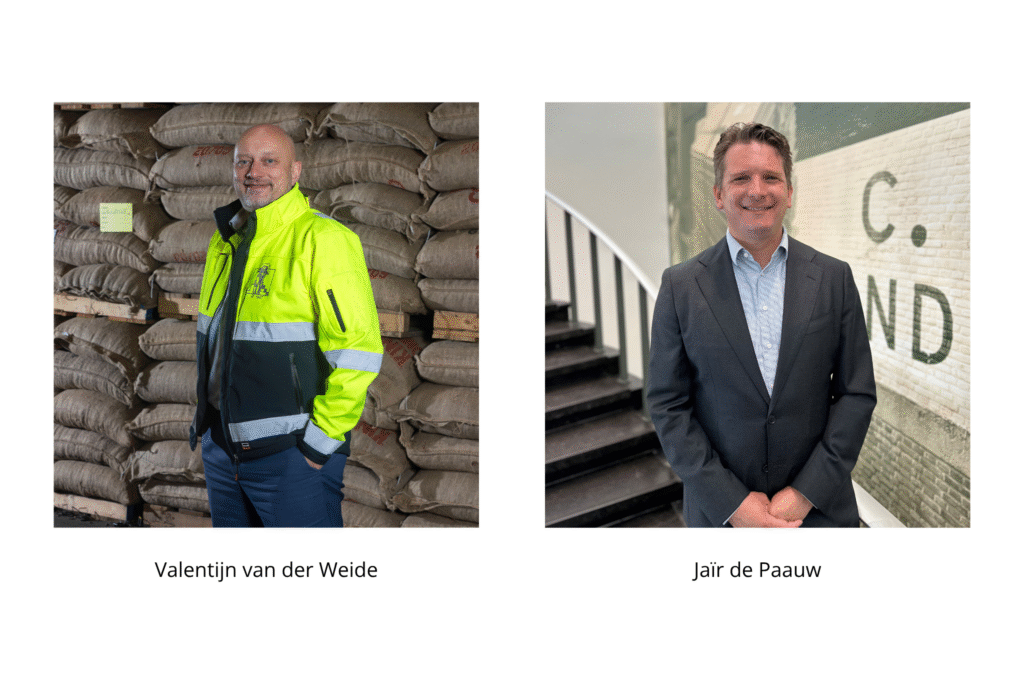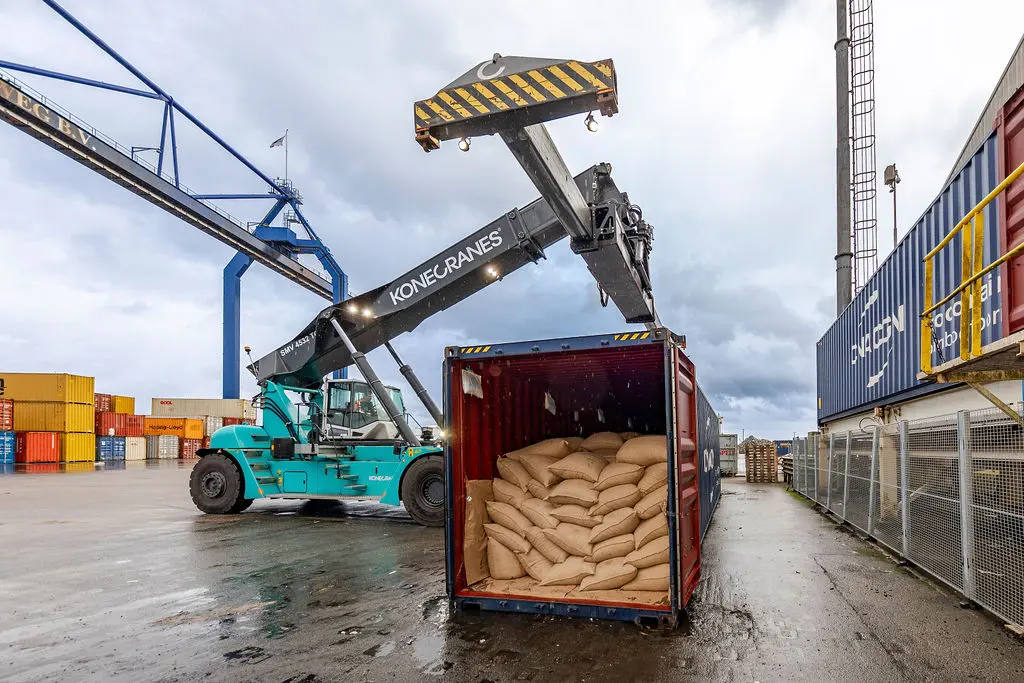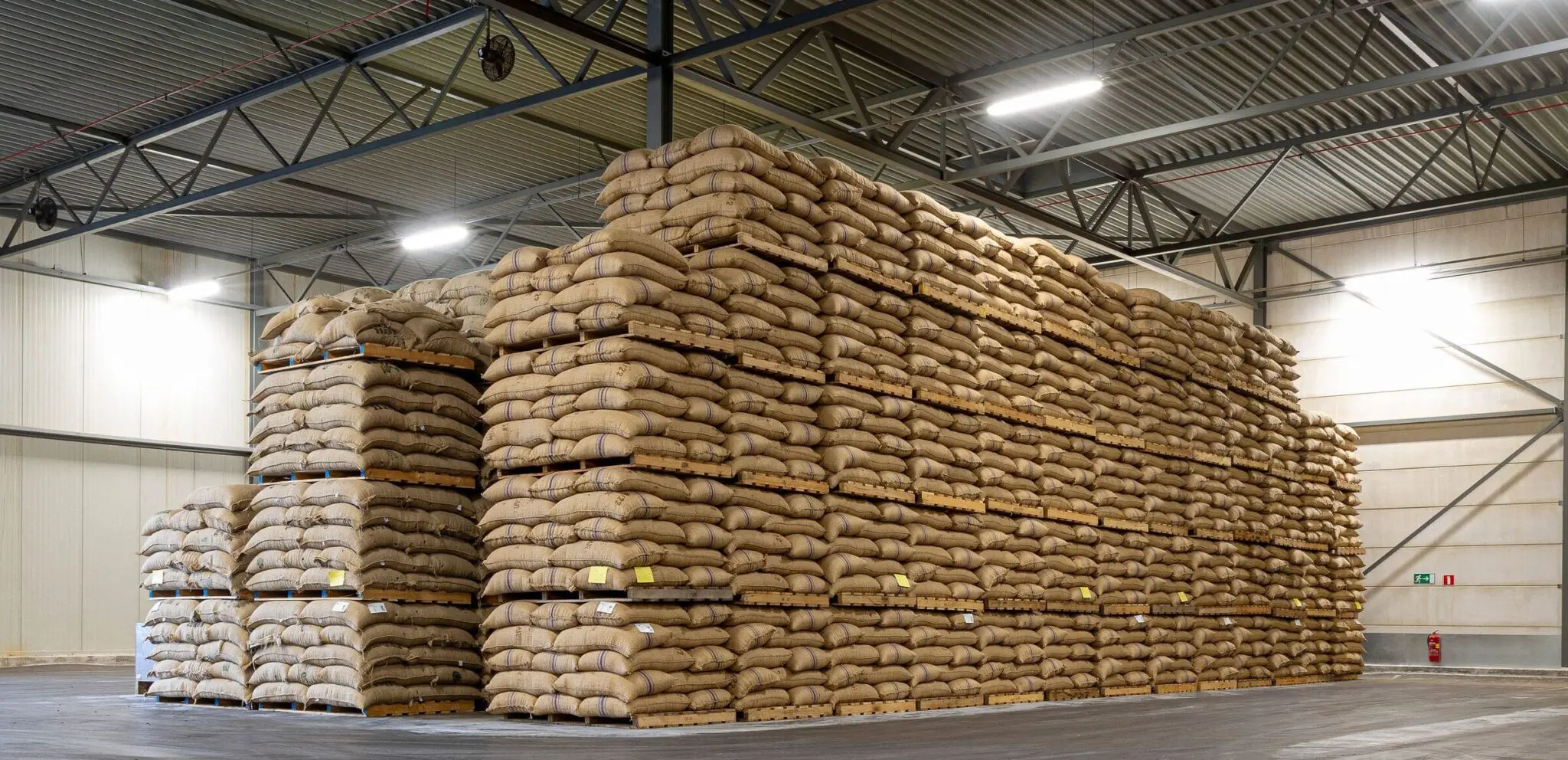On July 7th, chocolate lovers around the world celebrate World Chocolate Day. Behind every chocolate bar lies a complex logistical journey, with Amsterdam playing a pivotal role. At the heart of this process is Steinweg Amsterdam, where Valentijn van der Weide (General Manager) and Jaïr de Paauw (Business Development Manager) work daily to ensure the smooth flow of cocoa through the terminal.

A rich history as a cocoa terminal
“Steinweg Amsterdam has always been a cocoa terminal”, Valentijn explains. “To this day, cocoa remains the backbone of our terminal.” Each year, between 600,000 and 800,000 tonnes of cocoa arrive in the port of Amsterdam. A significant share passes through Steinweg’s warehouses. Beans arrive either in jute bags or in bulk, but working with bagged cocoa is a true specialism for the terminal. “We are the only terminal in Amsterdam working with bags at this scale. It really is a craft”, Valentijn says.

Every batch of beans is immediately weighed, sampled, and tested in our in-house laboratory. The beans are stored in temperature-controlled warehouses at 10 to 12 degrees Celsius, preventing pest infestation. Should there be any pests, Steinweg uses eight climate-controlled chambers whereby oxygen is removed, providing a sustainable, chemical-free method of control.
Additionally, Steinweg can repackage cocoa from jute bags to bulk or big bags, and perform cleaning processes such as sieving and metal detection. Finally, the beans leave the terminal by truck, container, ship, or – uniquely in Amsterdam – by train. Each week, a full train departs to Switzerland with cocoa beans.
From bean to semi-finished product: more links in the chain
Steinweg Amsterdam’s activities have significantly broadened in recent years. As part of the international Steinweg Group, the terminal boasts an extensive network, with key locations in Europe, Africa, Southeast Asia, and a growing presence in South America. “Our broad international network enables us to adapt quickly, even as markets shift”, says Valentijn.
Jaïr describes the terminal as a true hub. “We are the link between cocoa producers at origin, traders, and the processing industry in Europe. Where we used to focus mainly on beans, we now offer a true one-stop-shop, allowing us to control the entire chain. From quality control and shipping from countries such as Ivory Coast, Ghana, Ecuador, and Uganda, to storage, handling, repackaging, cleaning, and the onward transport of both beans and semi-finished products to factories in Europe, or even delivery to end customers.” This broadening of service offering is partly driven by changes in the global market: “More and more processing is now done locally in origin countries. This shifts the logistics needs, and we adapt to that.”
Sustainability as a given
For Steinweg, sustainability is not a separate pillar but a natural part of everyday operations. “We believe it makes sense to invest in solutions that are not only good for the customer, but also for the environment and the people working with us”, Valentijn notes. For example, the company is investing heavily in making its equipment more sustainable: the number of electric forklifts has grown substantially in recent years, and diesel trucks are being phased out step by step. The terminal largely runs on solar power generated on-site. The consolidation of locations has further reduced internal transport, lowering emissions and traffic within the port area.
Committed to sustainable initiatives
Steinweg Amsterdam was the first logistics company to join the Dutch Initiative on Sustainable Cocoa (DISCO). This platform promotes sustainability throughout the entire cocoa chain, focusing on issues such as deforestation, living incomes in origin countries, and the elimination of child labour. “We don’t just want to stand on the sidelines, but actively contribute to improvements throughout the chain”, Valentijn emphasizes.

Looking ahead: flexibility and control
The cocoa sector is traditionally a conservative market. Still, Jaïr and Valentijn are committed to innovation. Jaïr: “We cherish our history and expertise as a cocoa terminal, but we constantly look for ways to improve and grow alongside the sector.” Valentijn adds that flexibility is essential: “Due to port congestion and fluctuations in the global market, we must be able to adapt quickly. That’s why we continuously invest in capacity, people, and resources.”
And so, on World Chocolate Day, it’s safe to say that the chocolate you enjoy most likely spent time in Amsterdam, and quite possibly at Steinweg.
Published on July 7, 2025